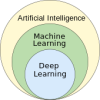SETI@home researchers said they have what they need.
Source: Tom’s Hardware
In May 1999 researchers from the Berkeley SETI Research Center outed its SETI@home distributed computing project, which sought the help of the public’s computers to process radio signals in hopes of finding signs of alien life forms. The project has been running for nearly 21 years, but this week the researchers announced it is shutting it down on March 31.
On the SETI@home home page, the Berkeley researchers said the project was going into “hibernation” because they have enough data.
“Scientifically, we’re at the point of diminishing returns; basically, we’ve analyzed all the data we need for now,” the page says.
Additionally, the researchers said that managing the distributed processing of data is a lot of work and that now want to focus on the back-end analysis of the obtained results so that it can be written into a scientific paper.
Distributed computing projects such as SETI@home or folding@home (which is currently being used to research a cure for coronavirus) rely on the public to donate their computer’s leftover processing power, allowing them to access the power of a supercomputer but without the associated costs.
Anyone that has been running SETI@home is advised to find another BOINC-based project for donating their computer’s resources.
What this means for the findings isn’t yet known, so if you want to know whether SETI@home resulted in the discovery of extraterrestrial lifeforms, you’ll have to wait for the researchers to finish writing their scientific paper.
Source: Tom’s Hardware

































Leave a Comment
You must be logged in to post a comment.